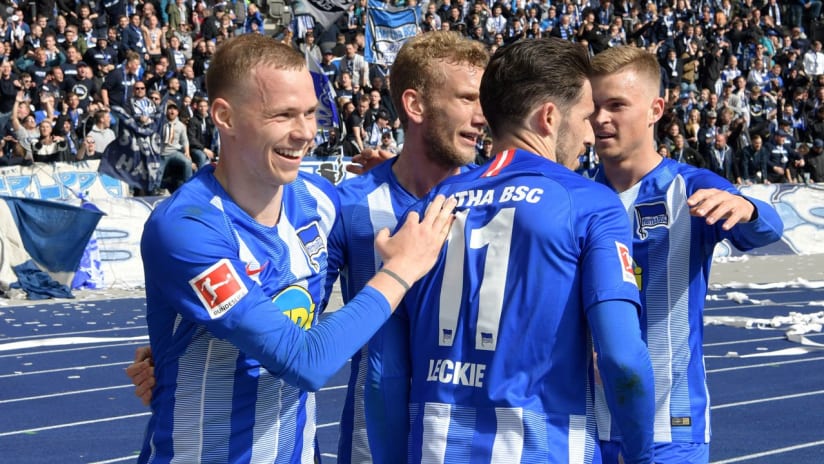On Wednesday, Minnesota United will take a break from league play to welcome Hertha Berlin of the German Bundesliga to Allianz Field. For 126 years, the club known as Die Alte Dame, or The Old Lady, has been the premier club in Germany’s capital and helped found the German Football Association or Deutscher Fußball-Bund.
TICKETS: MAY 22 VS. HERTHA BERLIN
Hertha, whose full name is Hertha Berliner Sport-Club e.V., wrapped up its sixth-consecutive season in the Bundesliga on Saturday, May 18, falling 5-1 at home to Bayer Leverkusen. The squad finished 11th in Germany’s top flight with 43 points on the year. Since regaining a spot in the league in 2013, Hertha has been predominantly a middle-of-the-pack finisher after staving off relegation early in its current tenure.
Midfielder Ondrej Duda led Hertha Berlin with 11 goals, along with five assists, in league play this season, putting him in the top 20 scorers in the Bundesliga. Duda along with defender Peter Pekarik are international teammates of Minnesota United’s Jan Gregus on the Slovakia national team.
This offseason will be one of rebuilding in the sporting operations office as manager Pal Dardai leaves his role after four and a half seasons at the helm and nearly 23 years at the club. Dardai joined the club as a player in 1997 and is the all-time appearance leader for Hertha Berlin, featuring 366 times. He took over as interim manager in February 2015 as the club was on the brink of being relegated to 2. Bundesliga and saved the team’s spot in the top flight.
Current U23 coach Ante Covic will take over for Dardai in July as the team prepares for the next season.
Among the older clubs in Germany, Hertha Berlin was founded as BFC Hertha 92 back in 1892 and reportedly named after a steamship that sported the blue and white color scheme the team still has today. The team was among the elite teams in the country in its early years, winning back-to-back titles in 1930 and 1931 despite limited financial backing.
After the restructuring of German soccer in 1933, Hertha fared well in its regional league, but struggled at the national level. Another realignment happened following World War II as the occupying Allied armies dissolved and banned many teams in the country, forcing Hertha to reform as SG Gesundbrunnen and eventually dropping to an amateur league. The team would gain its name Hertha Berlin in 1949 when it climbed back to the top regional league.
The divisions from the war would linger with the club for many years. Hertha played in a part of the city that was occupied by Western Allies, and as a consequence, was forbidden from playing East German teams for fear their East German counterparts would defect when traveling to face Hertha.
With the formation of the Bundesliga in the early 1960s, Hertha returned to the national stage but spent most of the decade in the second tier following a bribery scandal to try and lure players into joining the club despite the tumultuous environment following the rise of the Berlin Wall. The club saw a resurgence in the 1970s, reaching the later rounds of the UEFA Cup and achieving runner-up finishes in the league and DFB-Pokal, the nation’s premier cup competition.
The team hit a slump the following decade, slipping down to the amateur third division on two occasions. Talks of merging with other teams in the city fell through and financial hardship plagued the team even after a surge in popularity following the collapse of the Berlin Wall and the Soviet Union. A change in management and an influx of financial backing helped the team rebound before the turn of the century and set off a string of European appearances.
For most of the 21st century, the club has fluctuated from being a dominant second division side and title contender in the top flight followed by collapse and relegation back to the second tier. The team has stabilized itself in recent years, having its best league finish in nearly a decade by rising to seventh in 2016. The club’s goal to return to European competition has not been achieved in nearly a decade, but could be reality in the upcoming season as a new era begins.
Wednesday’s game will be a good test for MNUFC, allowing some rotation and fringe players to get minutes against a high-quality opponent and a chance to switch up strategy. Hertha will also be able to try out new ideas and look to identify positional needs with its squad as it prepares for a busy offseason. The visitors will certainly be motivated to send off their manager Dardai with a good showing, and prove to the new man Covic that they are able to take the team to the next level in the run for the Bundesliga title.





